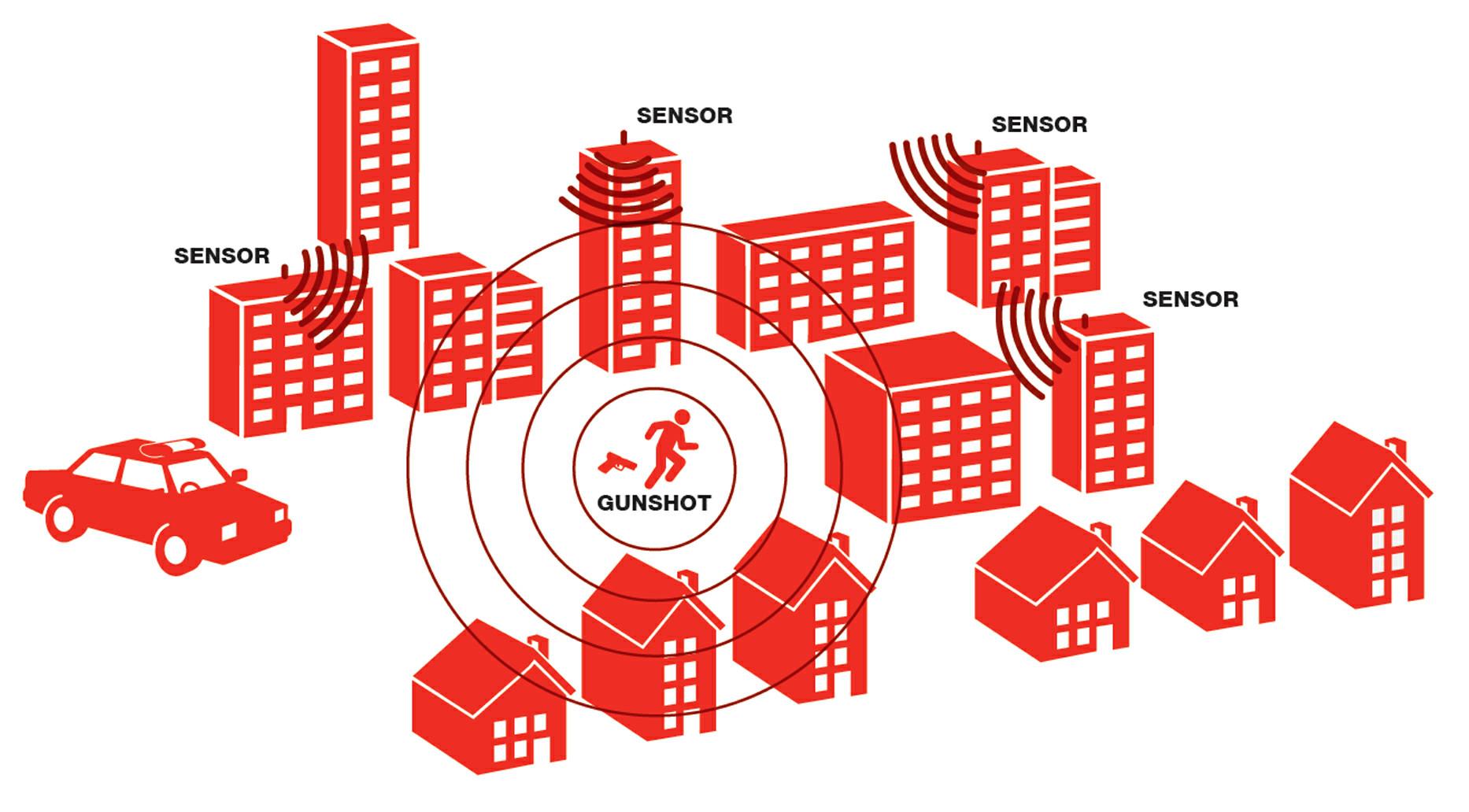
On Jan. 8, Denver police responded to an alert of gunshots fired in the city's Whittier neighborhood.
What made this alert different than the approximately 4,000 gunshot-related calls city police receive each year was that a computer connected to a slew of microphones detected the sound of the gun. It allowed officers to track the noise to within a half a block of its source.
The technology is called “ShotSpotter Flex,” and the Denver Police Department started using it this month. It uses a series of microphones around the city to record loud, cracking sounds. Once the system picks up a sound, audio experts at an office in California analyze the audio file to determine if it was gunfire. If that's what's suspected, Denver police are alerted.
Without the system, Denver police rely on 911 calls and other reports of gunfire from witnesses. Denver Police Capt. Steven Carter says officers still want people to call. The new system, he says, adds to the evidence officers can use in an investigation. And it's a good starting point for an investigation when no calls come in.
More than 90 cities around the world are now using ShotSpotter Flex, according to Liz Einbinder with the company. She says most of them are in the United States.
Denver’s first official alert from ShotSpotter Flex, the one on Jan. 8, came at 8 p.m. Police arrived shortly after and, once on the scene, they recovered bullet shell casings. Officers also learned the address where potential shooters were hiding, got permission to search the address, where they found three suspects with a handgun. Carter declined to say more, citing an ongoing investigation.
He hopes the system will lead to more prosecutions of people who fire guns illegally, endangering others.
Yet the system also raises concerns about privacy because microphones may also record people’s conversations. In Massachusetts, a conversation recorded by a gunshot detection system became part of a criminal case.
The American Civil Liberties Union of Colorado’s public policy director, Denise Maes, said though such cases are rare, it’s generally impermissible for police to record conversations to which they are not a party to without a warrant.
“If [ShotSpotter Flex] can be used for other purposes, and one of those purposes is to get around the 4th Amendment, then we have a problem because what the 4th Amendment says is you cannot search without a warrant and taking people’s private conversations is definitely something you would need a warrant for,” Maes said.
The federal Bureau of Alcohol, Tobacco, Firearms and Explosives is paying for the Denver Police Department's first year using ShotSpotter Flex, to see if the system helps Denver curb gun violence, Carter says.
“We will evaluate after that time to determine if it will continue,” Carter says.







